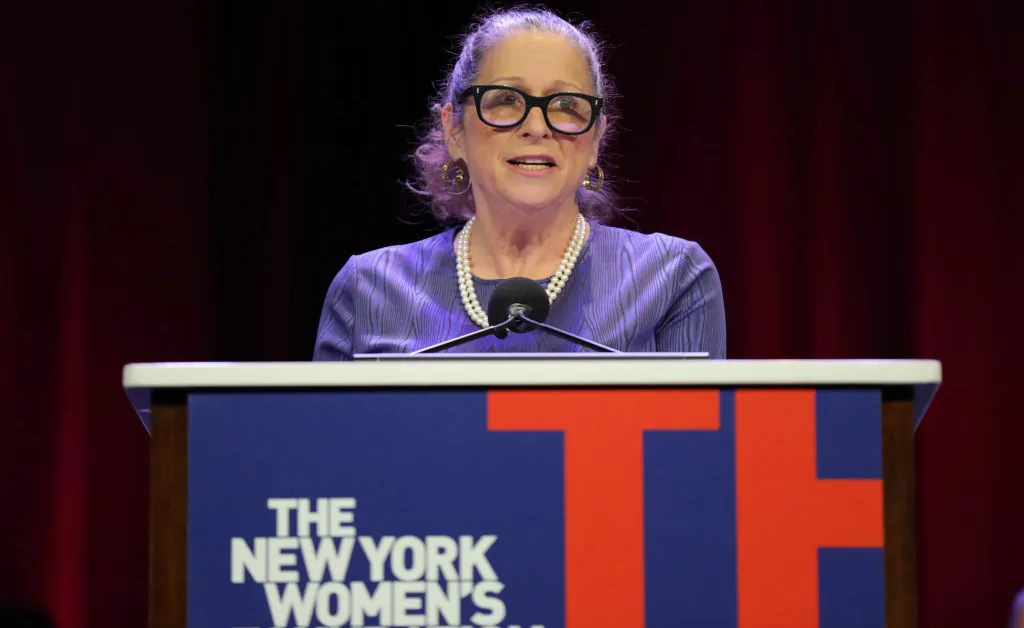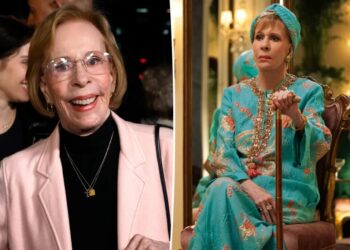This article is part of The D.C. Brief, TIME’s politics newsletter. Sign up here to get stories like this sent to your inbox.
Abigail Disney has to laugh at my question about how her advocacy is playing among her fellow super-rich. “My dinner-invitation card is not full,” she says.
[time-brightcove not-tgx=”true”]
But the Disney heiress and documentary filmmaker understands why some—including members of her immediate family—are uncomfortable with her agitating for higher taxes on wealthy individuals, her activism for higher wages for those who work in the theme parks founded by her grandfather and granduncle, and her films that hold up a lens to One Percenters’ arrogance. She does not mind that one of her brothers did not care for her film The American Dream and Other Fairy Tales or that “my parents would die” if they could see her choice of projects. Disney has an agenda, and it’s one that she knows actively works against her own self-interests.
“We don’t need any more money. We can see that pretty clearly,” she says.
Disney, who was in Washington last week for a conference of a group called Patriotic Millionaires, does not shy from her long-held belief that privilege is concentrated way too narrowly and at the expense of those who can afford it the least. Other like-minded critics of wealth and income inequalities—and they are different problems that require different solutions, she notes—joined her across the street from the Treasury Department’s headquarters to plot ways to rehash arguments that they are uniquely qualified to make, especially when it comes right from their pockets. After a quick breakfast at the posh Hotel Washington, most loaded up for a busy day lobbying lawmakers to put a bigger dent in their bank accounts.
It was a day that bordered on the surreal as former hedge fund managers, White House officials, trial lawyers, and, yes, some lucky folks who came by their wealth simply by being born into it hit the Hill to push an agenda that is completely at odds with the billionaire in the White House and the uber-wealthy in his inner circle.
Disney and her allies want a surtax on incomes over $1 million. They want working-class folks to earn their first $45,000 tax free. They want to tax businesses that don’t pay their workers enough until they realize wages are cheaper than their quarterly tax bills.
And they want money made off investments to face the same tax rate as money earned on the job. “When I get capital gains, it’s ’cause I’m sitting on my tookus. I mean, it’s literally the opposite of taxing work,” Disney says with full self-awareness.
It’s a policy-heavy message—including a potential Constitutional amendment that might be needed to go after the ultra-rich as much as she wants—but back at the hotel, Disney wants to talk in terms of morals.
“We can afford to pay more in taxes,” she says.
That realization came into clear focus way back in 1987, while sitting in a movie theater at 84th and Broadway. The film? Wall Street, with its famous “greed is good” speech.
“I’m thinking he’s the bad guy. There’s like an eruption in the theater. Literally people went crazy, hooting and hollering. This was like the best thing they’d ever heard in their lives,” Disney says.
Disney, the granddaughter of Roy Disney and grandniece of Walt, has long been at odds with many in her cohort. After college and before grad school at Stanford and Columbia, she worked for a year as a nanny in Ireland to escape the family fame. (By happenstance, her uncle happened to be Ronald Reagan’s Ambassador to Dublin during that time.) Her film projects have tackled sexual assault in the military, veterans’ struggles at home, campaign finance, foreign influence in politics, and, yes, even wealth and income inequality.
But justice has been the throughline. Decades ago she founded a nonprofit in New York focused on combating poverty. Last month, she spoke to the International Monetary Fund and World Bank meeting to decry centralized money. And last week, she lobbed a warning at G20 leaders meeting last weekend in South Africa in an essay for TIME.
Her advocacy for tax fairness has been so thorough that Snopes, the that-can’t-be-true-let’s-look-it-up catalogue, even confirmed that she wants to pay more taxes.
“It turns out that it is that hard to believe that, that someone would actually do something for the greater good and not in their own self-interest,” she says.
Disney has a complicated relationship with her wealth. (Her estimated net worth these days is around $120 million, according to The Chronicle of Philanthropy.) In her IMF/ World Bank turn in October, she all but apologized for it. “I can only speak to my own experience,” she said. “I grew up in a family with wealth and it was a family that decided to take the wealth it had and turn it into more wealth.”
But, she said, it came with a cost. “There is such a thing as too much money. And it’s bad for the world, for sure. But it’s also bad for the people who own it. … It is painful, soul-crushing, alienating, and morally corrosive.”
As we chat, she casually drops a complaint that lunch with her sister a few weeks ago in Sedona cost them $73 for burgers and sparkling water. She thinks it’s ridiculous that Disney employees in California have started a foodbank for colleagues because pay is so crummy in the parks, yet is cheap when it comes to giving to the county foodbank. She has been a persistent problem for the Disney board, especially when it comes to executive pay. She finds it appalling that the average billionaire produces in 90 minutes the same level of greenhouse gases the average person creates in a year. And don’t get her started on Elon Musk, who may become the first person on the planet to claim the title of trillionaire.
“It’s hard to watch us get here because I don’t hear very many people feeling revolted by the idea of a trillionaire,” she says. “It would take the average worker 16 million years to get to a trillion dollars. Sixteen million years is longer than there have been human beings.”
She shakes her head in disgust, yet she knows the answer is not going to come easily or quickly. That doesn’t mean she does not see the urgent need for action. “This is absurd. Can we not all agree that there is a point at which there’s too much money?”
Make sense of what matters in Washington. Sign up for the D.C. Brief newsletter.
The post ‘We Don’t Need Any More Money’: A Disney Heiress Begs Congress to Hike Her Taxes appeared first on TIME.




